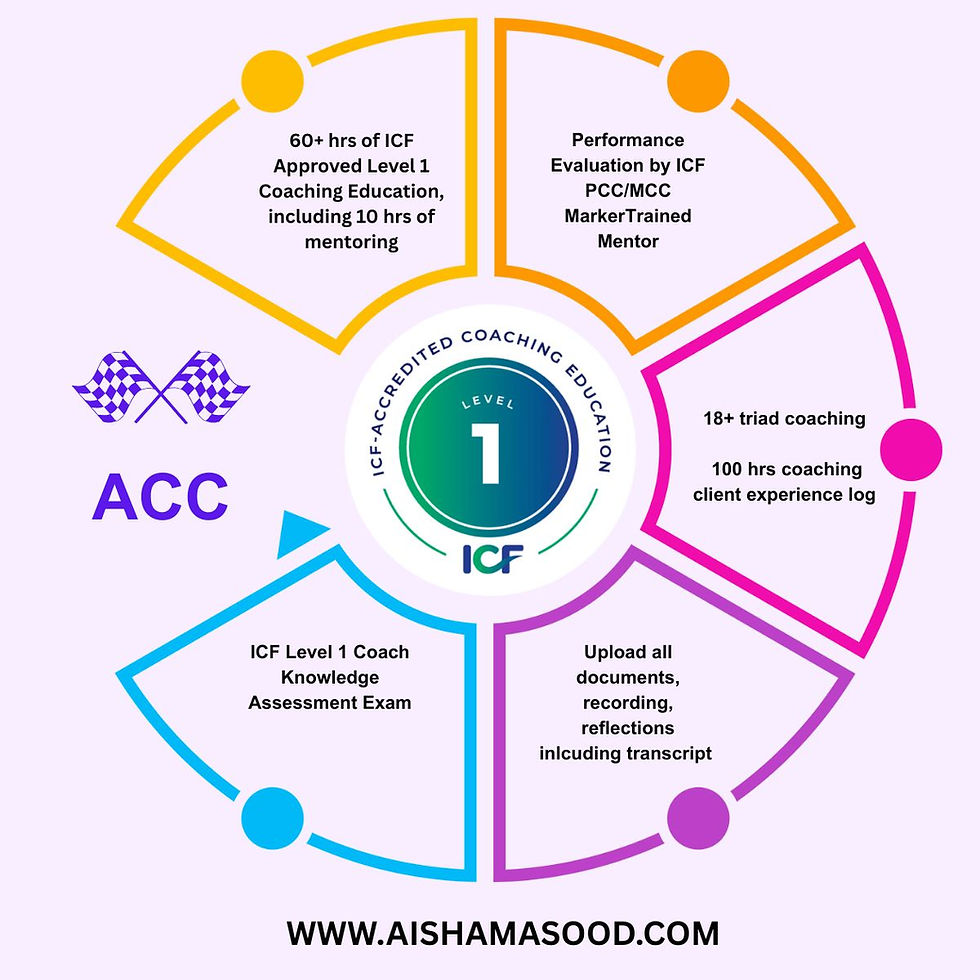Practicing the Competencies Without Sounding Like a Robot
- Ayesha Masood
- Sep 18, 2025
- 2 min read

“Be like a tree and let the dead leaves drop.” – Rumi
When I teach new coaches, I often see the same thing happen: they sit down, take a deep breath, and then start coaching like they’re reading from a manual. “What would you like to explore today?” (check). “How does that make you feel?” (check). By the third question, both coach and client are silently thinking, “This doesn’t feel natural.”
The truth is—memorizing the ICF Core Competencies is only half the journey. The real magic comes when you practice them until they become second nature.
Step 1: Focus on Presence, Not Perfection
When I first started coaching in 2018, I was so worried about “doing it right” that I forgot to simply be present. Presence is the secret sauce. When you’re fully with your client, the right question often arises naturally.
Step 2: Practice in Low-Stakes Conversations
I tell my students: don’t wait for your “official” coaching session to practice. Try listening actively when your teenager tells you about their day. Try evoking awareness with a teammate at work. These micro-practices build muscle memory without the pressure.
Step 3: Reflect After, Not During
One mistake beginners make is trying to self-analyze in the middle of a session: “Am I listening enough? Did I just break competency #4?” Relax. Be in the moment. The reflection comes after. Recordings, mentor feedback, and journaling are where the learning deepens.
Step 4: Find Your Own Style
Coaching isn’t about copying someone else’s script. Some coaches are gentle and calm. Others are bold and provocative. Your competencies don’t change, but your delivery will. I had one student who asked very short, sharp questions—another who painted with metaphors. Both were brilliant, because they were authentic.
Step 5: Embrace the Awkward Stage
Yes, you will feel awkward at first. Everyone does. In my early days, I once asked a question that was so convoluted, even I didn’t understand it. My client just laughed—and honestly, that moment built more trust than if I had been “perfect.”
My Honest Reflection
The shift from “scripted” to “natural” takes practice, humility, and patience. But the good news? Every time you coach, you grow. And one day, you’ll look back at your notes, smile, and think: “Wow, I don’t need the checklist anymore—I am the checklist.”
In summary: The competencies are not lines to recite; they are a way of being. Practice them daily, reflect often, and allow your unique coaching voice to shine through.
In the next article, we’ll explore how to actually build your coaching hours—and why those practice sessions matter more than you think.



Comments